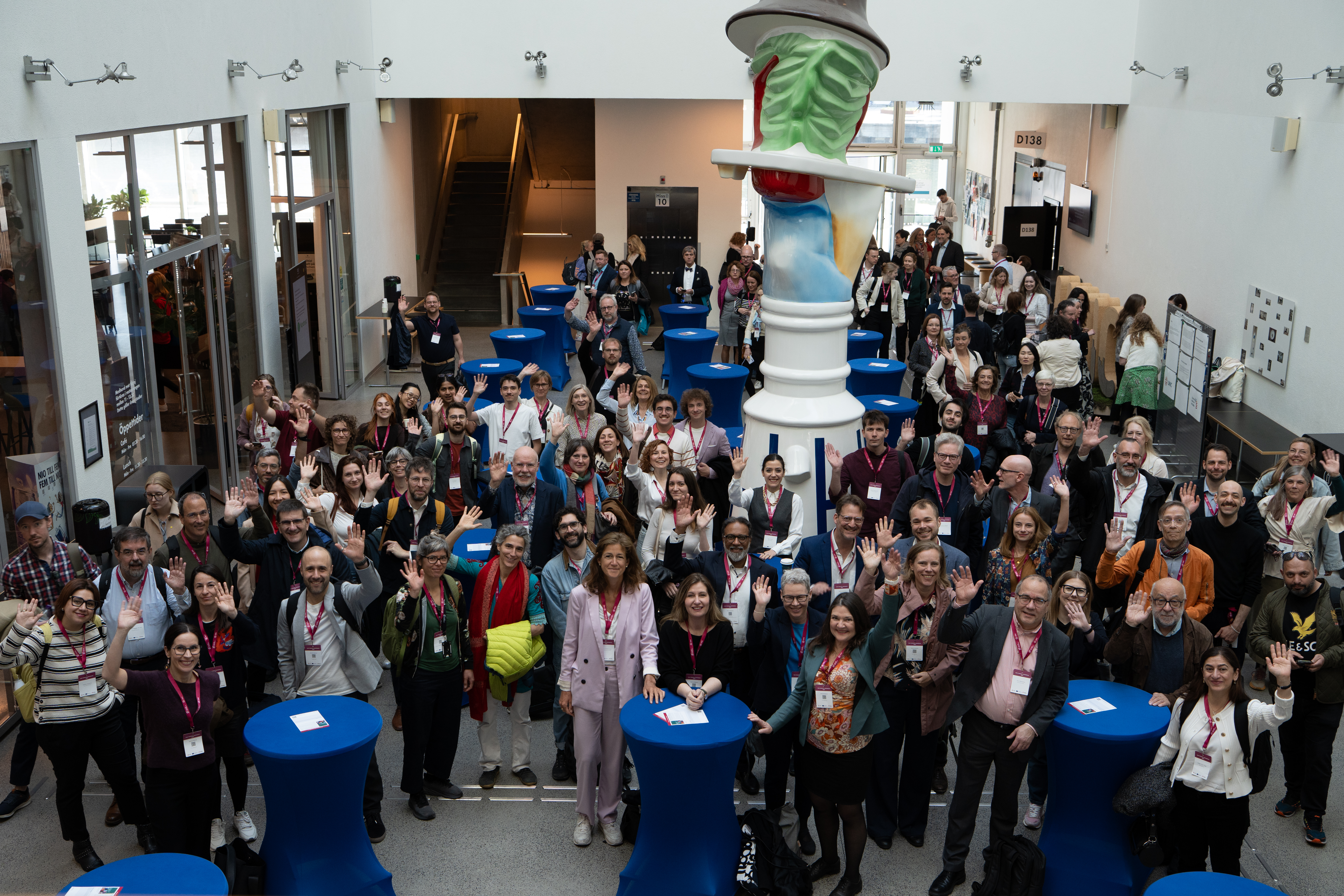The UNIC website uses cookies to improve your experience. Read our full Cookie Policy here.

How can European cities become sustainable and resilient? This was the central question at the first UNIC thematic conference held at Malmö University in Sweden from May 7 to 9, 2025. Among the participants were two students from Ruhr University Bochum (RUB): Caitlin Peng and Maximilian Dahlems. As part of the UNIC joint degree programme “Redesigning the Post-Industrial City” (RePIC), they gained far more than just valuable insights during the event.
The conference focused on two central UNIC Thematic Lines: “Sustainability and Green Cities” and “Urban Resilience and Smart Cities”. Researchers, students and municipal stakeholders came together to discuss how cities - particularly in post-industrial contexts - can be made more sustainable, resilient and equitable.
What made the conference special was that students were actively involved. They were invited to present their own work, contribute to the content of the conference, and network internationally. Caitlin Peng states: “It was great that several students, including my classmates, were chosen to present on panels alongside professional researchers and practitioners instead of being sequestered to a separate students-only track. This format felt more integrated and made me feel that students were treated with respect at the conference.”
Fellow student Maximilian Dahlems also appreciated the exchange at the conference, which provided valuable input for his master’s thesis on the EU mission “100 Climate-Neutral and Smart Cities.” “Many of the discussions were directly relevant to my research. The international exchange was very enriching.”
A Platform for Diverse Perspectives
The conferences featured around 24 sessions, including panel discussions, workshops, and excursions. Contributions came from a wide range of disciplines such as geography, sociology, economics, environmental science, architecture, and more. Interdisciplinarity was a top priority, as was the link between research and practice. “I was impressed by how open the exchange was and how much space was given to the different perspectives” reports Maximilian Dahlems. “In the discussions that followed, it became clear how helpful different perspectives are for rethinking complex urban challenges or linking them to other thematic fields.”
Caitlin Peng found the contributions on the role of children and young people in urban spaces particularly inspiring. “I appreciated how Dr. Sernaz Arslan drew the connection between neoliberal urban development and how urban spaces simultaneously over-surveil and underserve youth. We need to ensure that youth participation moves beyond tokenism so that youth can co-create urban spaces and participate in placemaking.”
“I think that this format can reduce elitism and the barriers to academia.” - Caitlin Peng
Caitlin also emphasized the broader value of such conferences for the further development of academic culture. “Opportunities such as the UNIC Thematic Conference offer students the opportunity to present their ideas and research alongside established career researchers and practitioners. This is important for students to not only share their work, research, and ideas beyond the classroom, but for researchers to have their ideas and work engaged with and challenged by the next generation. The benefits go both ways. I also think that this format can reduce elitism and the barriers to academia.”
“Formats like this do more than just help you get started in academia.” - Maximilian Dahlems
Both RUB students are convinced that the UNIC conference in Malmö was valuable experience, both professionally and personally. “As a student, you gain an early insight into the discourse on international research and can contribute your own ideas,” says Maximilian Dahlems. “Formats like this not only help you get started in academia but also strengthen your ability to reflect on complex issues through interdisciplinary, transnational, and practice-oriented dialogue.”
He encourages students interested in the European university alliance UNIC to speak with their professors about opportunities to get involved or upcoming events. “It doesn't cost anything to ask, and this often opens up exciting opportunities for participation that you might otherwise miss.”
The original interview was conducted by Jessica Siegel, RUB, and translated and adapted by Nina Harbecke, RUB.
Original article: Grüne Städte und smarte Lösungen | Newsportal - Ruhr-Universität Bochum
Photo: UNIC
From silos to synergy: organisational learning in post-industrial citi...
Over the past six months, a group of researchers and practitioners in our UNIC network have be...
03 Jun 2025
Read more »A Master’s Thesis Journey from Bochum to Oulu with UNIC - Exploring Gr...
Geography student Alina Grunwald, Ruhr University Bochum, is writing her master's thesis on gr...
02 Jun 2025
Read more »Urban Resilience in European Post-Industrial Cities: Takeaways from UN...
Professors Satu Nätti and Jarkko Saarinen share their insights to Urban Resilience and experie...
02 Jun 2025
Read more »